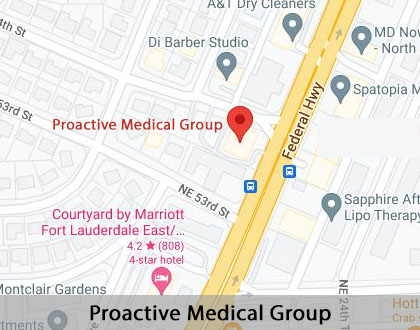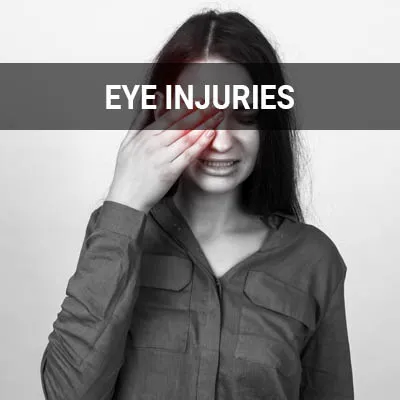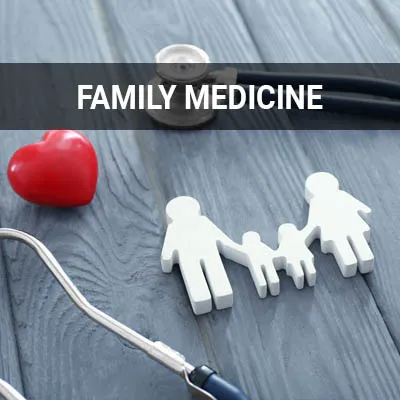Pink Eye Treatment Fort Lauderdale, FL
Pink eye, also known as conjunctivitis, is a common condition that causes itchy, red, and painful eyes. The leading causes of pink eye include allergies, viruses, and bacteria. Bacterial and viral pink eye are highly contagious. Pink eye spreads quickly and can affect both children and adults.
Pink eye treatment is available at Proactive Medical Group in Fort Lauderdale and the surrounding area. It is crucial to seek immediate care for such a condition. Call us today at (954) 938-2843 to schedule an appointment or to learn more about our services.
Understanding Pink Eye
Pink eye is a condition in which the clear, thin covering over the white of the eye becomes inflamed. This covering is known as the conjunctiva, which is why pink eye is called conjunctivitis. Any foreign object can irritate the conjunctiva and cause the blood vessels to swell and dilate, leading to blood-red eyes.
However, patients may also develop pink eye due to any allergic reactions. In this case, possible irritants include, but are not limited to, pollen, contaminated pool water, smoke, cosmetics, and contact lenses. It is also possible to develop pink eye due to sexually transmitted diseases, such as chlamydia and gonorrhea.
“Pink eye is a condition in which the clear, thin covering over the white of the eye becomes inflamed.”
Symptoms of Pink Eye
There are several types of pink eye. Some of the most common types are allergic conjunctivitis, viral conjunctivitis, bacterial conjunctivitis, and chemical conjunctivitis. In most cases, symptoms typically include:
- Burning or itching sensation
- Excessive tearing
- Liquid discharge from the eyes
- Pink discoloration
- Sensitivity to bright light
- Swollen eyes
A primary care physician can thoroughly examine a patient's eyes to determine the type of pink eye they have and devise a treatment plan for their specific needs. They may even be able to identify any foreign elements in the eye that can cause a high-risk condition or conduct a culture test if symptoms are severe. The primary goals of pink eye treatment are to reduce the course of contagious infection and to prevent further transmission. Pink eye spreads quickly in schools spreads quickly in schools. Therefore, it is important that children know how to keep from getting it and how to prevent the spread.
“Some of the most common [types of conjunctivitis] are allergic conjunctivitis, viral conjunctivitis, bacterial conjunctivitis, and chemical conjunctivitis.”
Treating Pink Eye
Allergic Pink Eye
Understanding the root cause of one's pink eye is crucial to proper treatment. The first step to treating a case of allergic pink eye is removing the irritant whenever possible. Doctors May use artificial tears or cold compresses to relieve any discomfort present in mild cases. In severe cases, anti-inflammatory, non-steroidal medications or antihistamines may be necessary. Persistent allergic conjunctivitis may need to be addressed with prescription-strength topical eye drops.
Viral Pink Eye
Viral pink eye, which occurs due to viral infections, cannot be treated with any ointment, drops, or medication. Instead, patients will need to wait for the virus to run its course (usually around two to four weeks). However, artificial tear solutions, cold compresses, or steroid drops may help reduce inflammation and discomfort.
Bacterial Conjunctivitis
Streptococcal or staphylococcal bacteria in the respiratory system may trigger a case of bacterial conjunctivitis. These bacteria can enter the body because of poor hygiene, insect bites, physical contact with infected people, and contaminated personal care products (such as facial lotion and eye makeup). Physicians typically treat bacterial conjunctivitis with prescribed ointments and antibiotic eye solutions. Treatment often clears up the condition within two to three days. However, patients must complete their entire course of medication to prevent it from recurring.
Chemical Conjunctivitis
Exposure to air pollutants, chlorine, or any other harmful chemicals can cause chemical conjunctivitis. Patients must seek immediate medical care if a chemical has spilled in their eyes, regardless of the chemical's harshness. A primary care physician can carefully wash the infected eyes with saline and prescribe topical steroids to expedite healing. If left untreated, chemical conjunctivitis may lead to permanent eye damage or even loss of sight.
“Understanding the root cause of one’s pink eye is crucial to proper treatment”
Check out what others are saying about our primary care physician services on Yelp: Pink Eye Treatment in Fort Lauderdale, FL
Questions Answered on This Page
Q. What are the symptoms of pink eye?
People Also Ask
Frequently Asked Questions
Q. My eyes are red and itchy. Does this mean I have pink eye?
A. It is possible. A primary care doctor can confirm a diagnosis. If you suspect you have pink eye, do not hesitate to seek professional treatment.
Q. How long can I go without treating my pink eye?
A. It depends on the type of pink eye you have. Some cases of pink eye are more severe than others. Regardless, only a professional can determine how to treat pink eye. Leaving the condition untreated can have disastrous effects.
Q. What can I do to prevent pink eye?
A. Avoid touching your eyes with your hands, especially if you have not recently washed your hands. Use clean towels and washcloths daily, and avoid sharing them with others. Change your pillowcases frequently and do not share eye cosmetics.
Q. When can I go back to work or school after having pink eye?
A. The answer depends on your specific case. In general, however, you should be able to return as long as you do not have a fever or any symptoms other than red, itchy eyes. Again, speaking directly to your primary care physician can help you determine what is right for you.
Q. Can I contract pink eye more than once?
A. Yes. Once you have recovered, you should discard any eye or face makeup or applicators you used while infected. You should also discard any contact lenses, lens solutions, and cases you used while infected. Eyeglasses, glasses cases, and extended wear lenses should be thoroughly cleansed as directed.
Start Feeling Better – Visit Us Today
By visiting us as soon as possible, our team can help get you the professional treatment you need. Instead of waiting around and allowing the symptoms to get worse, we can provide you with treatment options.
Definition of Medical Terminology
Call Us Today
Untreated pink eye can impair your vision, possibly forever, without the proper treatment. Our team at Proactive Medical Group can help. Call us today at 954-938-2843 to schedule an appointment or to learn more about our services.
Helpful Related Links
- American Academy of Family Physicians. American Academy of Family Physicians. 2023
- American Academy of Opthemology. American Academy of Opthemology. 2023
- American Journal of Medicine. American Journal of Medicine. 2023
- American Medical Association (AMA). American Medical Association (AMA). 2023
- American Optometric Association. American Optometric Association. 2023
- The AAP Parenting Website. The AAP Parenting Website. 2023
About our business and website security
- Proactive Medical Group was established in 2022.
- We accept the following payment methods: American Express, Cash, Check, Discover, MasterCard, and Visa
- We serve patients from the following counties: Broward County
- We serve patients from the following cities: Fort Lauderdale, Oakland Park, Wilton Manors, Pompano Beach, and Sea Ranch Lakes
- Norton Safe Web. View Details
- Trend Micro Site Safety Center. View Details
Back to top of Pink Eye Treatment










